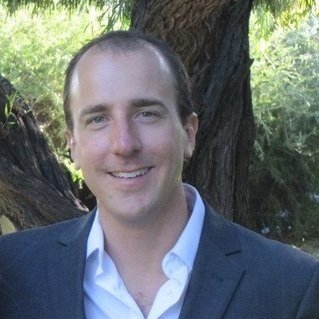Q&A with David Reid
NAME
David Reid
TITLE
Research Fellow
QUALIFICATIONS
PhD Geotechnical Engineering
Everyone has a story to tell, and this month we asked David Reid, Research Fellow at The University of Western Australia, the hard questions.
What motivates you to get out of bed in the morning?
Usually, it’s my daughter jumping on the bed saying good morning. But aside from that, every morning I find it exciting to get to the lab, check the progress of tests, and take yesterday’s samples from the oven. There is always an answer to a previous question or something new to learn once one processes those results.
Why did you choose your current career and how did you get to your current position?
I chose civil engineering as felt engineering seemed a good choice as I had an interest in computers, math, and geography and the types of things civil engineers work on had always had the most appeal – bridges, dams, etc. I had no idea what a tailings storage facility was when choosing that! After undergrad I wanted to travel and escape Canadian winters, so ended up working in Perth with Golder. Initially it was to be a 3-month stint, essentially a working holiday doing CAD work. Then I really got to like Perth, and TSFs, and have never left either.
After a few years working as a consultant, my interest in the technical side of things grew. I first did a coursework masters at UNSW, then finally went all-in and did a PhD at UWA with Andy Fourie, focusing on laboratory element testing of tailings. Since then, I have worked in both consulting and research, and am now really excited to be starting a tailings-focused lab for Red Earth Engineering in Perth.
What is your favourite part of your job?
When the emails and Slack messages have been sorted, and you have an uninterrupted afternoon in the lab to work on a particularly challenging sample or preparation technique.
What do you find most challenging about your role?
Trying to not let the desire to keep checking on a test, or prepare the next sample, from stopping me closing out other work that I know is more pressing. Oh and meetings – I find they are always interrupting a key step in a sample preparation process, and as such they feel like they get in the way often.
What is one thing you would like to change about the mining and geotechnics/rock engineering industry?
Two things:
Every journal paper should, in my opinion, require that all figure data is electronically provided by the authors. I would like to live in a world where no one ever has to digitise a PDF figure ever again.
More data from real projects being permitted to be published. This has improved already in my experience, but it could go further. It is this type of data that enables engineering advancements to occur.
What areas of the industry or trends do you think will become more important in coming years?
I would like to say lab testing of tailings, but that’s probably already quite important and will remain so. I hope that in situ stress measurement, e.g. self boring pressuremeter, installation of pressure cells becomes more important as without those, we are really guessing on some things.
If you could invite three people, alive or dead, to dinner – who would they be and why?
I guess I should go geotechnical here to keep with the theme rather than ancient Romans or something. It could be fun to get some pioneers working in related to areas to hear the stories of how things had developed in their time, discuss where we are now, say Taylor, Casagrande and Hazen?
What moment of your life would you want to re-live – and would you change anything?
Maybe the last year of undergrad. At the time it seemed a bit stressful and I just wanted to get it done, but in retrospect the work was interesting and it would be great to be able to stop and appreciate that time more.
What is the best advice you have ever been given?
It was a discussion with a few mentors early in my career around the pros and cons of different career trajectories, in terms of how an engineering career can look and what to consider when deciding your specific path. In essence, only go down the PhD route if you really want to be in the lab at, say, 10pm trying to figure out what is going on with a test (or numerical model, if that’s your thing). I think that’s really true, and I didn’t appreciate how true at the time. Thankfully in my case, that is where I want to be.
What advice would you give to someone considering geotechnical or rock engineering as a career?
This will sound like such typical/standard geotechnical engineer advice, but it really is true: get experience with site work, site investigation work, and lab testing as early in your career as you can. Those things add such value to your later career and you might not have as many opportunities to do those things later when you get a bit more experienced and in turn, more expensive and spend more time in the office.
Oh, and the advice about only do a PhD if you want to be in the lab at 10pm tinkering, noted previously. That is really sound.

